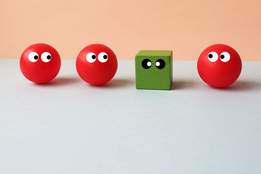gruntled; gruntling
ˈgrən-tᵊl-iŋ 

ˈgrənt-liŋ
: to put in a good humor
were gruntled with a good meal and good conversation— W. P. Webb
W. P. Webb
 W. P. Webb
W. P. WebbLove words? Need even more definitions?
Merriam-Webster unabridged








Share